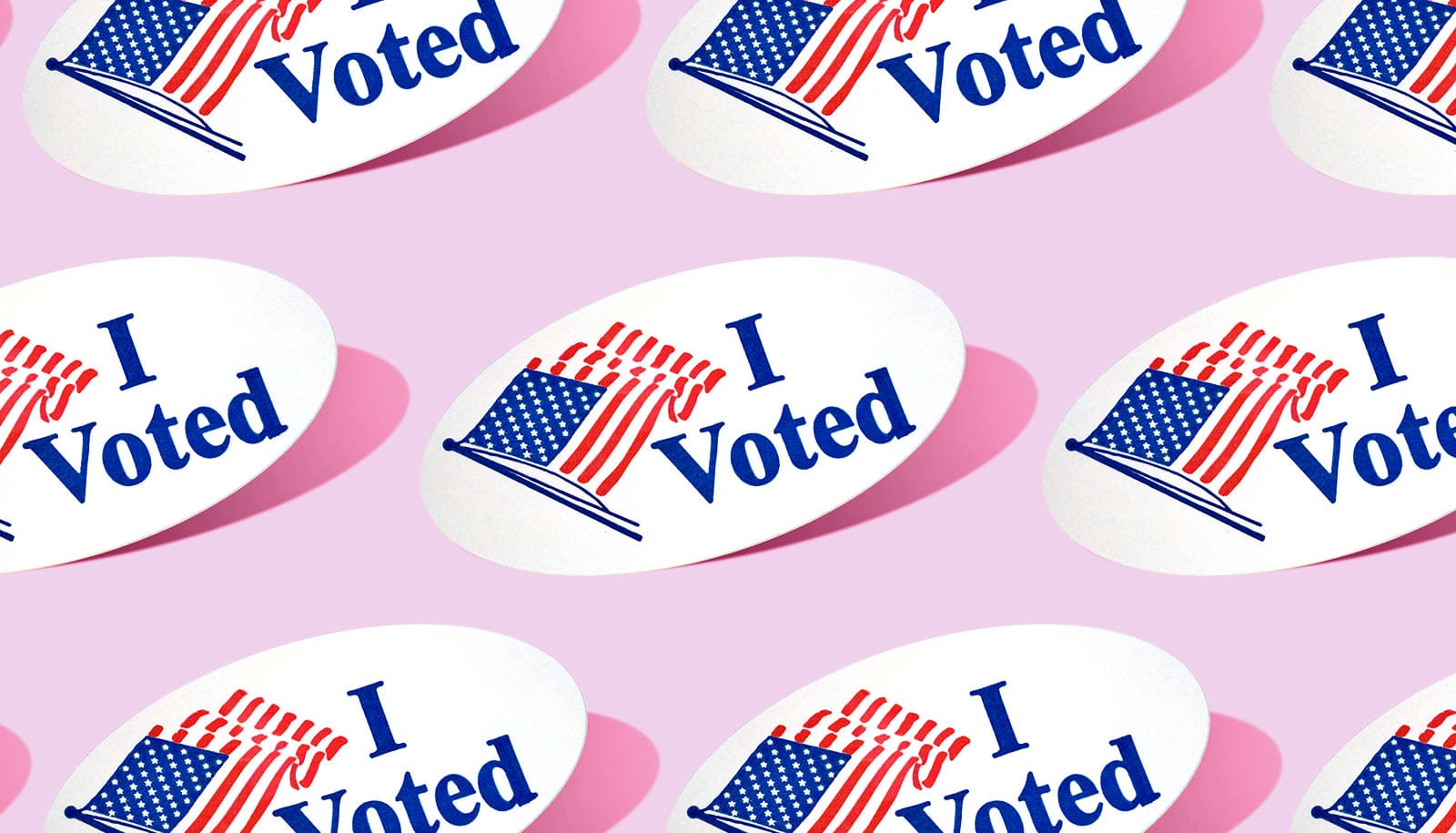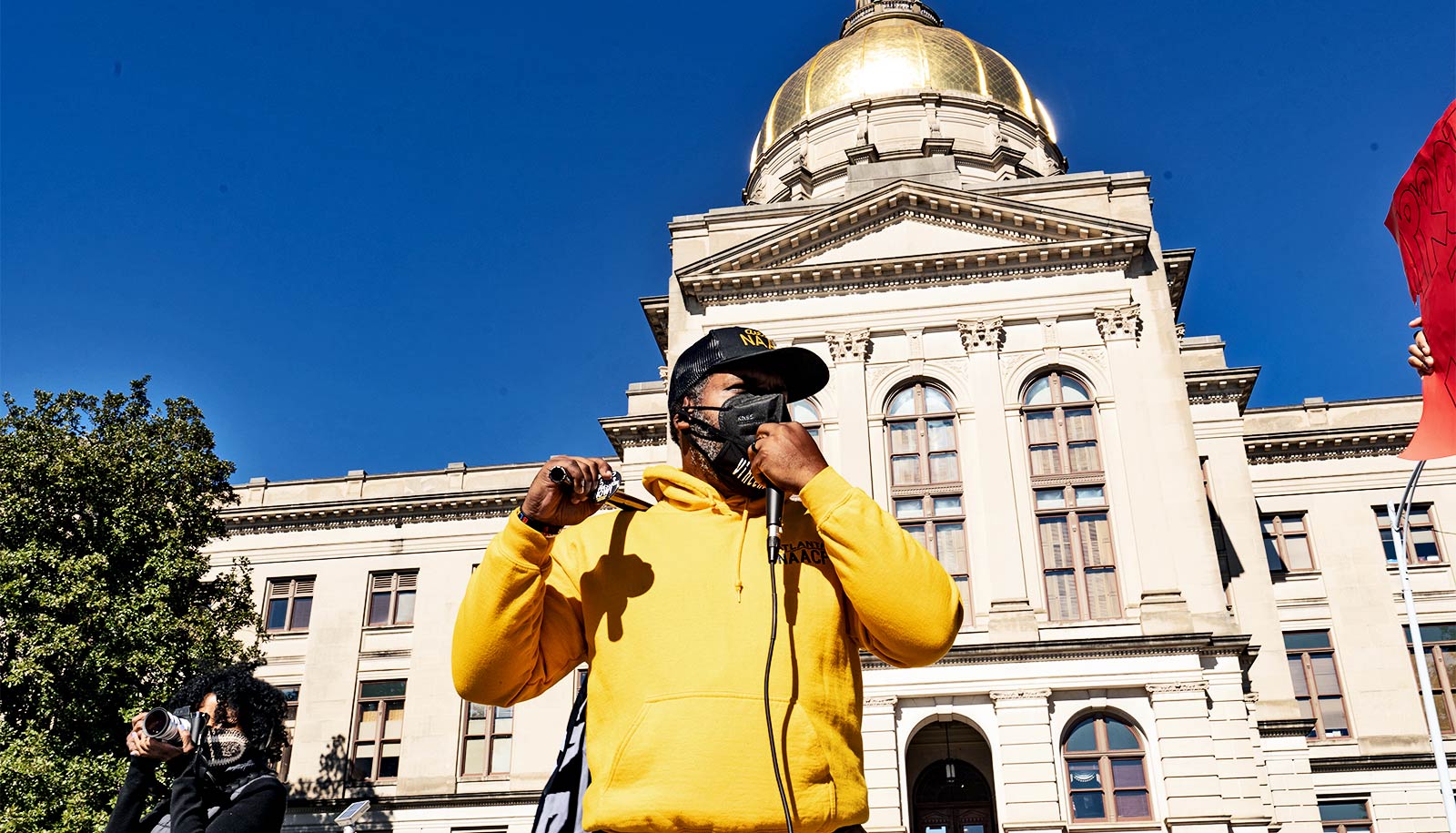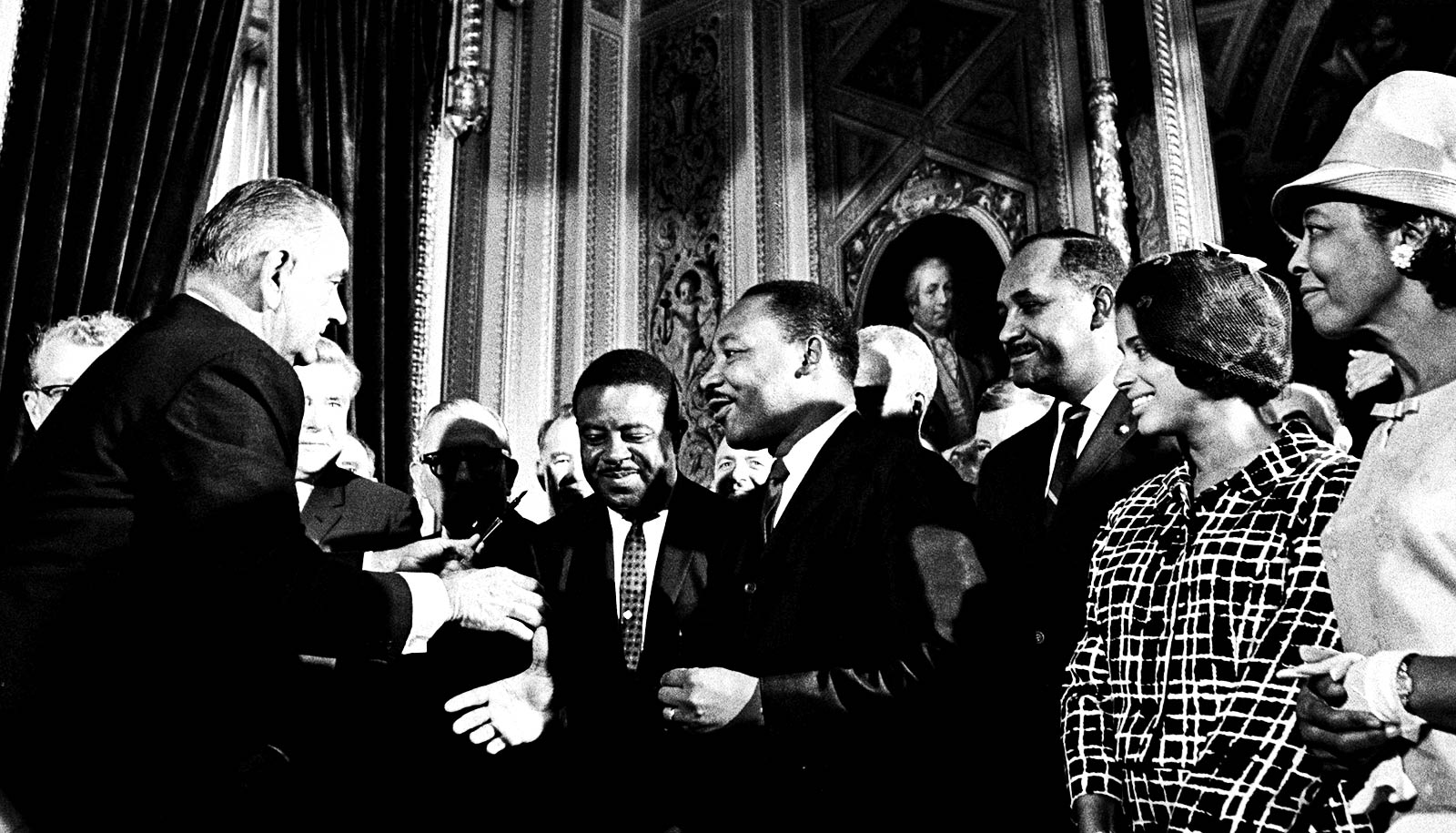State voting laws have little effect on the outcome of partisan elections in the United States, a new study shows.
Does requiring an ID to vote help Republicans win? What about allowing people with prior criminal convictions to cast ballots—does that favor Democrats?
For years, Democrats and Republicans in the United States have argued over state voting laws, which many believe will aid one party at the polls. The findings of the new study suggest otherwise.
“A lot of these laws generally don’t do what people are worried they’re going to do,” says Eitan Hersh, professor of political science at Tufts University and coauthor of the paper with Justin Grimmer, professor of political science at Stanford University and a senior fellow at the Hoover Institution.
“A clear implication of our analysis is to lower the temperature on election administration policies,” the researchers write.
“Lawmakers should not pass laws thinking they will help their partisan side. It won’t work and it’s a waste of time. And the media should not portray every change in an election law as a red-alert scenario that will determine future elections.”
That said, with state and national elections sometimes close to a tie, “there are incentives to change laws in the moment and help your side,” Hersh says. Legal changes that have been proposed include allowing legislatures to overturn elections and letting election boards refuse to certify election results.
Those are the kind of post-election policies “that should concern us, because you can laser target your changes to where it’s going to have a big outcome,” says Hersh. “No one should want partisan actors to be able to manipulate elections” after votes have been cast.
Voter ID
After the 2013 US Supreme Court case Shelby County v. Holder, which overturned a section of the 1965 Voting Rights Act, Republican-dominated legislatures in southern US states passed a number of laws requiring photo IDs to vote. The laws also sought to purge some voters from registration records. Democrats have said these laws disenfranchise many voters who would likely support Democratic candidates.
“In one of the states I worked in, state IDs like a concealed carry handgun license ID would be eligible under the voter ID law, but a student ID would not be,” says Hersh, who has testified in voter ID legal cases. Since students tend to favor Democratic candidates, while gun owners tend to vote more for Republicans, “people read intent into that kind of thing.”
But the result of voter ID laws was not what either side anticipated.
“In terms of the effect of these laws, what you see—and we have really clear data on this now—is that very few people don’t have an ID,” says Hersh. “You can’t have a job legally without an ID. You can’t drive legally. Most people have IDs, and those who don’t have IDs tend to be people who had very low participation in elections even when they were eligible. A voter ID law just doesn’t affect very many people.”
While the law affects few people, he notes that there’s “pretty good evidence that it disproportionately affects African Americans.”
That’s because “any law that disproportionately burdens people who have low education or low income levels will tend to burden African Americans out of proportion to their numbers. But overall it may help the Democratic Party, which is the preferred party of most African Americans. That’s because we’re at a point right now in American politics where most low-education, low-income voters support Republicans.”
Arguments have also been made that the effects of the voter ID laws promulgated by Republican-led legislatures have been balanced because of extra voter-turnout efforts by Democrats. But Hersh is skeptical. “We think it’s very clear that that cannot be the explanation for why these laws don’t have partisan effects,” he says.
For example, he says, in states where the electoral races are not competitive—and therefore get-out-the-vote efforts are not made—the voter ID laws’ effects are no different than in states that are competitive, where those efforts are concentrated. Plus, it’s very hard to get people out to vote.
“If you make 100 door-to-door canvas stops, out of those you might get four voters,” Hersh says. “Now, campaigns still invest in that because they want those four voters, but it’s very hard to do that. You’re down to a really small number of people that could possibly be mobilized on account of reaction to the law.”
Conviction and voting
Then there are laws that deny the right to vote for people who have been convicted of crimes—around 5 million people across nearly all states. In this case, it is more often Democratic-led legislatures that seek to overturn these laws and allow people with felony convictions to vote.
But as with other partisan voting laws, the hoped-for outcome—that the formerly disenfranchised would lean Democratic—is on shaky ground, Hersh says. “A lot of them would not vote if they were eligible, and in states where they are eligible, they’re quite balanced in their partisanship.”
In every state with disenfranchisement based on involvement with the justice system, Black people are blocked from voting at higher rates than other people, but in terms of total numbers nationally, people with former felony convictions “are two-thirds white, non-college educated men, who are a very Republican voting group. So you don’t have the outcomes that people might expect,” Hersh says.
“I personally think that once someone’s served their time, they should be able to vote,” he says. “On a moral level, I think that’s the right decision. Now, is that going to help Democrats or Republicans? In some states, as we show, it’s going to help Democrats a little bit, and in some states, it’s going to help Republicans.”
Voting by mail
Since 2020, some Republicans have argued that laws allowing voting by mail or same-day voter registration help Democrats, but according to Hersh, there’s no evidence for that, either.
“Before Trump, mail voting had basically no partisan valance,” he says. “It was passed into law by both parties. It might increase turnout by a percentage point or two, but in a balanced way. I think that is still true.”
He says that now more Democrats than Republicans are choosing to vote by mail because Republicans have been told by their party leaders that they shouldn’t vote by mail.
“But this doesn’t seem to affect participation or outcomes. It doesn’t disproportionately help one party or another. Republicans might vote more in person and less by mail, but they are not showing up at lower rates.”
Some Republican-led states have passed laws limiting voting by mail, “but the evidence is that these anti-mail vote laws don’t actually affect participation beyond a percentage point or two, and not in the way that affects partisanship,” Hersh says. “Republicans are incorrect if they say that mail voting helps Democrats, and Democrats are incorrect if they think without mail voting we don’t have democracy.”
Source: Tufts University


